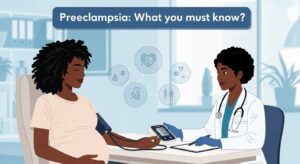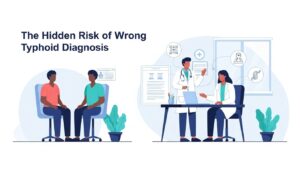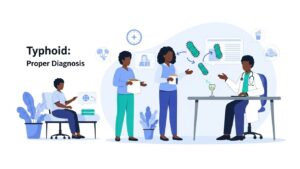Welcoming a new baby into the world is often described as one of life’s most joyous milestones. However, for many new mothers, this period can also bring unexpected challenges, including postpartum depression (PPD). While it’s common to feel overwhelmed, tired, or emotional after childbirth, postpartum depression is a more severe and persistent condition that requires attention and care. At Well-Life Hospital, we understand the emotional and physical toll of new motherhood and are here to support you. In this article, we’ll explore the signs, causes, and treatments for postpartum depression and discuss how to support mental health after birth.
Understanding Postpartum Depression
Postpartum depression is a serious mental health condition that affects approximately 1 in 7 new parents. It goes beyond the “baby blues,” which are temporary feelings of sadness, fatigue, or anxiety that typically resolve within two weeks after childbirth. PPD can last for weeks or even months and significantly impact a mother’s ability to care for herself and her baby.
Symptoms of Postpartum Depression
The symptoms of postpartum depression vary but commonly include:
- Persistent feelings of sadness, hopelessness, or emptiness.
- Intense mood swings or irritability.
- Difficulty bonding with the baby or feeling disconnected.
- Excessive crying without a clear reason.
- Fatigue or lack of energy despite adequate rest.
- Changes in appetite (eating too much or too little).
- Trouble sleeping or sleeping excessively.
- Feelings of guilt, shame, or worthlessness.
- Difficulty concentrating or making decisions.
- Thoughts of self-harm or harming the baby (in severe cases).
These symptoms can interfere with daily life and create feelings of isolation and despair. It’s important to note that PPD is not a sign of weakness or failure as a parent—it is a medical condition that can be treated effectively.
Causes and Risk Factors
The exact cause of postpartum depression isn’t fully understood, but it’s believed to result from a combination of physical, emotional, and social factors.
Physical Causes
- Hormonal Changes: After childbirth, levels of estrogen and progesterone drop rapidly, triggering mood changes.
- Thyroid Issues: A decrease in thyroid hormone levels after birth can contribute to symptoms of depression such as fatigue and mood swings.
Emotional Factors
- Stress from adjusting to motherhood.
- Fear of not being a good parent.
- Feelings of loss related to identity or independence.
Social and Lifestyle Factors
- Lack of social support from family or friends.
- Financial stress or unemployment.
- Having a baby with special needs or medical complications.
- Being a first-time parent or having multiple children to care for.
- A personal or family history of depression.
The Impact on Mental Health
Postpartum depression doesn’t just affect the mother—it can have ripple effects on the entire family. Mothers struggling with PPD may find it difficult to bond with their baby, which can impact the child’s emotional development. Partners may also experience stress and feelings of helplessness as they try to support their loved one through this challenging time.
Treatment Options for Postpartum Depression
The good news is that postpartum depression is treatable. Early intervention can help mothers recover more quickly and improve their quality of life. At Well-Life Hospital, our mental health specialists offer a range of treatment options tailored to each mother’s needs.
1. Therapy
Speaking with a mental health professional is often the first line of treatment for PPD. Common approaches include:
- Cognitive Behavioral Therapy (CBT): Helps individuals identify and change negative thought patterns.
- Interpersonal Therapy (IPT): Focuses on improving relationships and communication skills.
2. Medication
In some cases, antidepressant medications may be prescribed. These medications are generally safe for breastfeeding mothers but should always be discussed with a healthcare provider.
3. Support Groups
Joining a support group can provide comfort by connecting mothers with others who are experiencing similar challenges. Well-Life Hospital facilitates peer-support sessions to create a safe space for mothers to share and heal.
4. Self-Care Strategies
While professional treatment is essential, self-care plays an important role in recovery:
- Prioritize sleep whenever possible by enlisting help from your partner or family members.
- Maintain a balanced diet to support physical health and energy levels.
- Engage in light physical activity such as walking to boost mood naturally.
- Set realistic expectations for yourself—motherhood is not about perfection.
Preventing Postpartum Depression
While it’s not always possible to prevent PPD, there are steps that new mothers can take to reduce their risk:
- Build a strong support network during pregnancy by reaching out to family and friends.
- Communicate openly with your partner about your feelings and concerns.
- Attend prenatal classes to prepare for the challenges of motherhood.
- Seek professional help if you have a history of depression or anxiety.
When to Seek Help
If you’ve been feeling persistently sad, anxious, or overwhelmed for more than two weeks after giving birth—or if you’re experiencing thoughts of harming yourself or your baby—it’s crucial to seek help immediately. Well-Life Hospital offers mental health assessments and therapy sessions to support mothers dealing with postpartum depression. Contact our team at +234 810 329 8585 or visit our website at Well-Life Hospital to schedule a consultation.
Supporting Loved Ones with Postpartum Depression
If someone you love is experiencing postpartum depression, here’s how you can help:
- Offer practical assistance such as cooking meals or watching the baby so they can rest.
- Listen without judgment—sometimes just being there is enough.
- Encourage them to seek professional help if they haven’t already done so.
- Avoid minimizing their feelings. Instead, validate their emotions and remind them that recovery takes time.
Conclusion
Postpartum depression is a complex but treatable condition that affects many new mothers worldwide. By recognizing the signs early and seeking appropriate care, mothers can regain their sense of well-being and fully embrace the joys of parenthood. If you’re struggling with PPD—or know someone who is—remember that help is available, and no one has to face this journey alone.
At Well-Life Hospital, we are committed to providing compassionate and comprehensive care for mothers experiencing postpartum depression. Whether you need therapy, support groups, or medical intervention, our specialists are here to guide you toward recovery. Don’t hesitate to reach out—your well-being matters.






